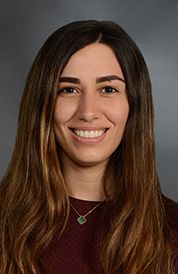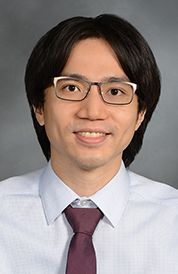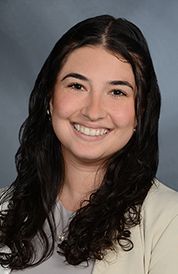Thank you for inquiring about the Pathology Residency Training Program at NewYork-Presbyterian/Weill Cornell Medicine. The program where you complete your residency training has a huge impact on your future career, and this can make the process of choosing a residency program somewhat stressful. We'd like to share with you some of the highlights of our program — from a resident’s perspective — to help make your decision a bit easier.
There are numerous benefits of training at Weill Cornell. In surgical pathology, we have a high volume of specimens and work with expert faculty. Because of those factors, we can divide our surgical pathology training into subspecialty rotations. For example, you may start out your first year with four weeks of gastrointestinal pathology, during which time you will gross, preview, and sign out only GI specimens. Such subspecialty rotations not only offer a focused, in-depth learning environment, but also ensure that you will be signing out with attendings who are experts in that particular field. Similarly, on our clinical pathology rotations, which begin in PGY-1, we start each subspecialty with a two-month rotation. Our CP learning is hands-on, fielding questions from physicians on the floor and actively participating in management meetings. In addition, our laboratory management and informatics course challenges and prepares you to take on a directorship role in the future.

Dr. Carla Stephan, AP Chief Resident

Dr. Chandler Sy, CP Chief Resident

Dr. Nicole Maddie, Assistant AP Chief Resident
Our program also allows us to tailor our training to fit our career goals. Elective time is built into our schedules each year starting with PGY-1, allowing additional subspecialty exposure. Senior residents can use elective time for research and junior attending rotations to further develop their academic and clinical skills. These advantages help our residents to secure competitive fellowships and to feel comfortable signing out our own cases in the future. Graduated responsibilities are emphasized. Many residents stay at Weill Cornell, which offers 14 fellowships in more than 10 different fields. Other benefits of our program include financial support to buy books and travel to conferences, and personal workspace for each resident, including individual desks, microscopes, and computers.
While many programs provide similarly excellent training, most of us chose Weill Cornell because of the community here. There is amazing camaraderie among the members of our housestaff, most of whom live in guaranteed housing within a few blocks of the hospital with almost everyone else within walking distance. Our residents have a variety of academic and clinical interests, but the bottom line is that we all work hard, and work together! There is always another resident around if you have a question about a specimen, to get advice on a diagnosis, need to switch calls, or just want to take a coffee break. It really makes life easier when you have the support of your fellow residents. Faculty doors are always open whether to discuss difficult cases or get advice in career planning and every PGY-1 is assigned a faculty mentor to help guide the transition into residency and residents pick up more mentors along the way as they decide on their career plans.
The COVID-19 pandemic brought many changes to the department, but the one constant was the support from the department and the hospital at large. Dr. Salvatore, our residency director, made resident safety a top priority and attending workflows adjusted for their and our benefits. New York-Presbyterian provided all residents with bonuses, a raise, and free meals throughout the spring and summer, as well as providing the hospital community with daily video briefings to keep everyone up to date in a time where things were changing every day.
Pre-COVID, it was easy to get together outside of work for dinners, comedy and Broadway shows, game nights, and nights out on the town. Friday happy hours happen regularly. There have even been weekend hiking and indoor rock climbing trips. During the lockdown, happy hours and game nights moved to zoom, and as the city begins to return to normal, so too do our social lives.
Living in New York City is a unique experience. The hospital and the resident housing are located on the Upper East Side, which is a pleasant residential neighborhood. There are plenty of local restaurants, bars, and shops. Central Park is only a few blocks away. It's easy to travel by subway or bus to other parts of NYC for theater, sports, and restaurants serving any type of food you can imagine. NYC has something for everyone!
These are just a few of the reasons why we chose Weill Cornell, and why we think it's an outstanding place to train for a career in pathology. If you have any questions, please don't hesitate to contact us.
Sincerely,
Carla Stephan, M.D.
AP Chief Resident 2025-2026
qgh9002@nyp.org
Chandler Sy, M.D., Ph.D.
CP Chief Resident 2025 - 2026
cbs9006@nyp.org

